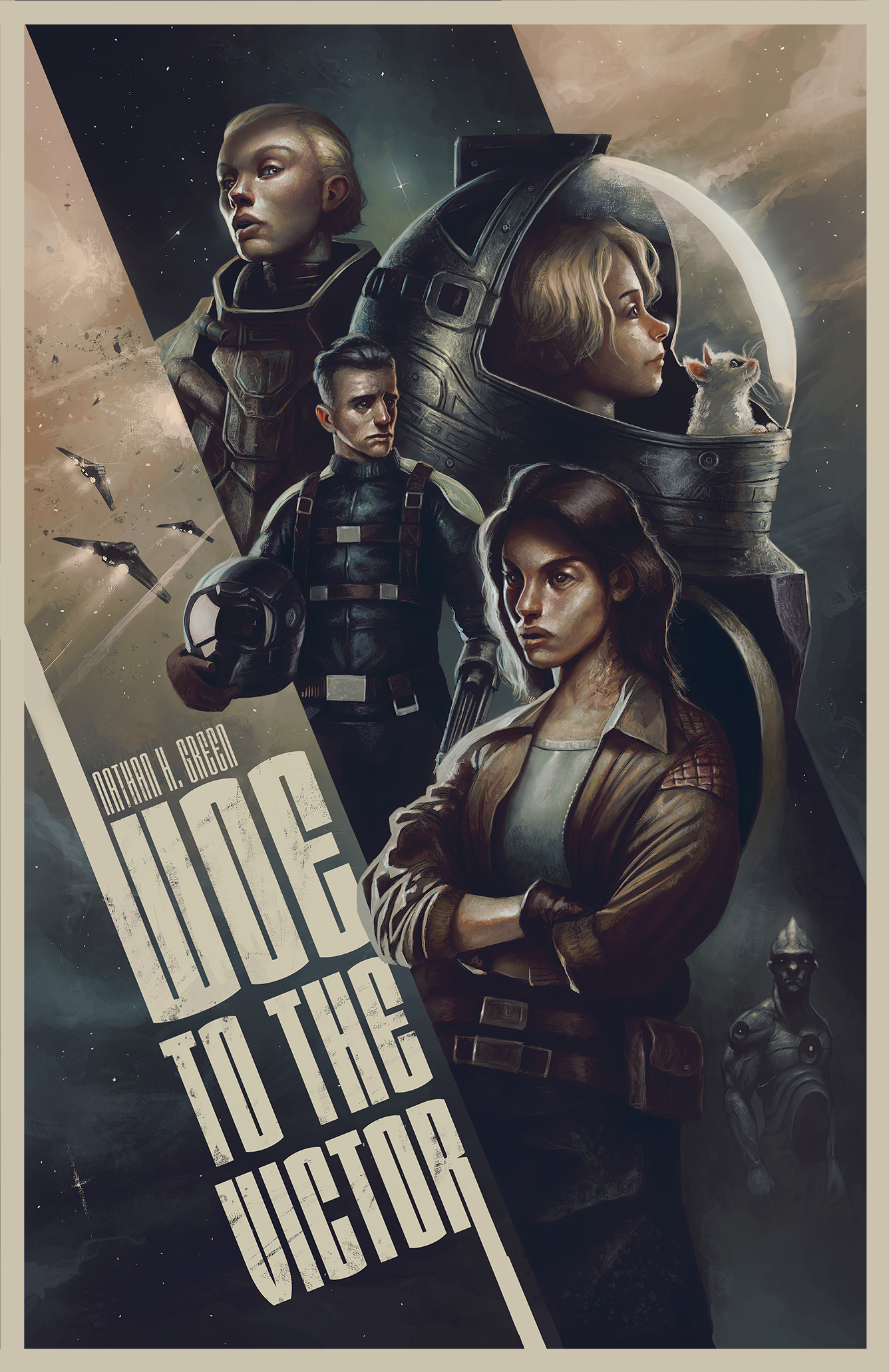Our Hidden Gem for SPSFC 3 is Woe to the Victor

One of the traditions of the SPSFC is for judging teams to pick their hidden gem, a book that deserved to go further in the contest than it did. For the third SPSFC, which just concluded, our team is choosing Nathan H. Green's Woe to the Victor as our gem.
Woe to the Victor was one of the two semifinalists selected by our team, but it did not advance to the finals -- to our surprise. When we sampled all of the books in our initial allocation, we were high on this novel from the opening chapters.
Green's a corporate lawyer in Canada putting his aerospace engineering degree to use on hard SF.
His book finds humanity on the eve of total annihilation. An invading fleet of Maaravi has completely wiped out the outer colonies and come to Earth for the finishing strike. This is not a fair fight. There's nothing cocky or confident left in our protagonists. The fighter pilot Lewis Black knows that at best all he can accomplish is to buy a few extra minutes so that the humans chosen for colony ships might escape through a Vortex Generator and start over on distant planets to prolong the species. But like everyone else, Black lacks belief his mission will succeed.
Before the war Black had often wondered why soldiers in WW1 had gone over the top of the trenches, knowing they would die, knowing it wouldn't truly make a difference. How they must have felt in the moments before hurling themselves at death. Now he knew.
This fatalism was refreshing. You don't often find a MilSF novel with absolutely no triumphalism. Despite the impossible odds Black soldiers on, as do his fellow pilot Allie Perez and a civilian engineer Natasha Palmer, who is haunted by the failure of Reaper missiles in combat. Earth's greatest weapon became its greatest disappointment when used against the Maaravi. Hundreds of pilots who flew with Black and Perez are dead and Natasha has become the scapegoat. Perez puts a gun to her head when they meet and it becomes clear this is not for show. She has to be talked out of pulling the trigger.
One of the only advantages humans have in the war are the AIs aboard ship. The Maaravi, who are centuries beyond humans technologically, don't use AI because they fear it. There's probably a lesson there.
That was the real problem with humanity allowing itself a Pandora's box, whether it be nuclear weapons, genetic engineering, or AI. It was only a matter of time, be it decades, centuries, or millennia until a situation arose where things were desperate enough to open the box, and pray it could be closed later. ...
With her safeties off, Carol could have full control of the Talon, and of herself, if she wanted it. The final restraints were simply code blocks in the Talon's internal software. Against Carol those software restraints were a joke. He held his breath.
Aberrant code scrolled over the screen.
The lack of AI safeguards plays out in the relationships between Black and Carol, the AI aboard his fighter who is his closest friend, and the AI Arce aboard the SFS Yorktown, whose commander describes her using a contemptible slur and yearns for an excuse to shut her down.
Green does a good job of doling out information on the Maaravi and why they're determined to eradicate humanity. Readers get enough to keep going but remain almost as starved as the protagonists for knowledge that can save the day. By the time you learn the Maaravi's motivation, it has a compelling logic. When you can leave human readers in doubt about whether humans should not be completely wiped off the universe, that's good writing.
The novel could use some polish to fix minor typos and punctuation, though overall it's a pleasure to read. There's a lot of action but what elevates it are the moral dilemmas faced by the characters. As Black, Natasha and Perez improbably survive a series of incredibly dangerous situations, because so many others die they must make decisions that will decide the fate of two species.
The ending is close to perfect, fully realizing the premise that gives the book its title.
There's also a cat.
Add a Comment
All comments are moderated before publication. These HTML tags are permitted: <p>, <b>, <i>, <a>, and <blockquote>.

